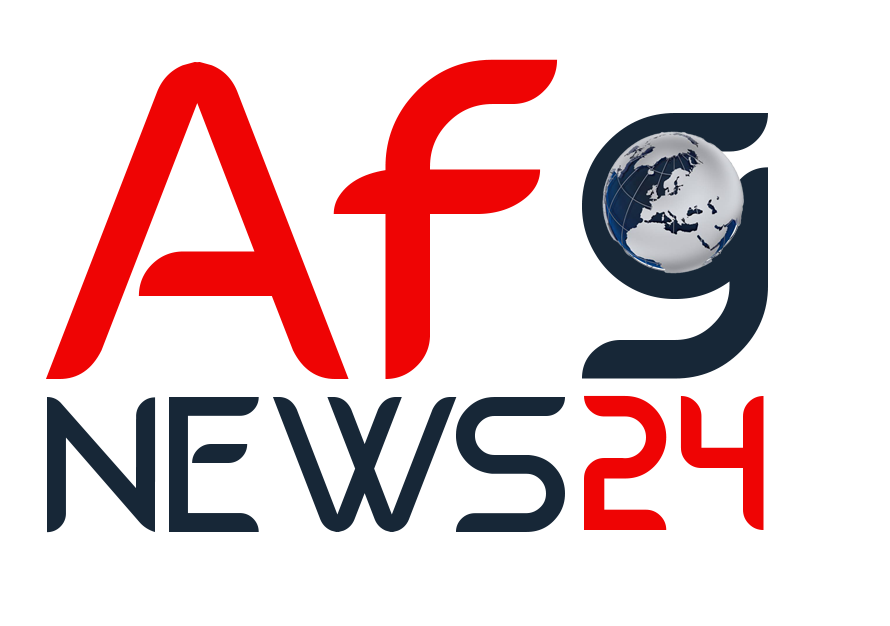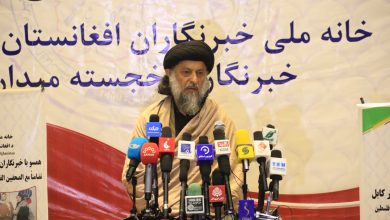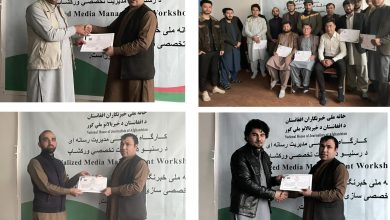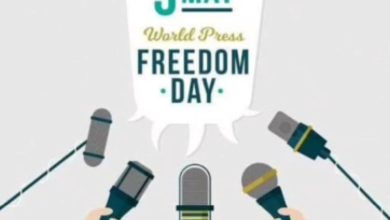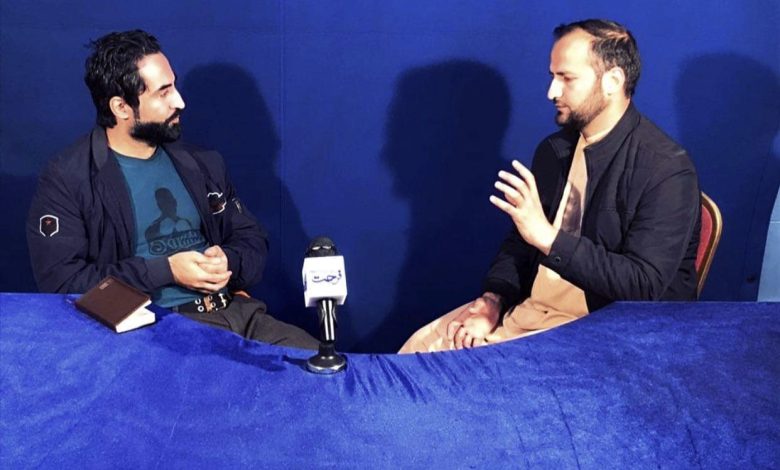
Tribion department of the supporter of journalists
An exclusive interview with Zarif Karimi, the head of the watchdog of free media in Afghanistan “Ni”
Correspondent: Basir Bahavar
Question: First of all, introduce yourself, what is your field of study and how long have you been working there?
Karimi: My name is Zarif Karimi, I have graduated from the field of law with a bachelor’s degree and a master’s degree in penal and criminology. I am
Reporter: Can you tell us a little about Nihad Nihad, the watchdog of free media in Afghanistan?
Karimi: Nei started its initial work as an organization supporting journalists and media in 2004 and officially entered the scene in 2005 as an independent and free organization and is currently active.
The central office is in Kabul, the field offices are in four zones, our field office in the north is in the city of Mazar-e-Sharif, our field office in the east is in the city of Jalalabad, our field office in the south is in the city of Kandahar, and our field office in the west is in the city of Herat.
Reporter: Keeping in mind the challenges and changes in the country, how many provinces does the institution actually operate in?
Karimi: Ni’s activities in general are at the level of the whole country. We have one central office and four field offices, and in each province we have provincial representatives who are in contact with the respective zone field offices and are also in contact with the central office.
We work in several departments, in the training department, which constitutes our main department, in the department of solicitation and production of reports, and in the department of dealing with the issues of journalists, in the department of cooperation of material and spiritual support.
Also, Ney has his support with journalists for advancing the issues of journalists in government offices both in the previous government and in the current administration.
No, fortunately, as one of the institutions that has taken the lead and has good communication in the field of journalism and media work in Afghanistan, we have trained nearly 12,000 journalists so far.
Correspondent: Karimi Sahib, if he says the main goals of the organization, what are they?
Karimi: No, it means support, capacity building, training and institutionalizing the values of freedom of expression, access to information and support for media work in Afghanistan.
Reporter: What is the role and relationship of Internews with Ni?
Karimi: Internews has been active as a supporter of the media in Afghanistan, and it is one of the institutions that was established with the support and petitions of Internews.
Enter News is an international organization that has established nearly ten media organizations and more than 50 radio stations in Afghanistan.
Reporter: Please tell me clearly what kind of cooperation Internews has done in the establishment of Internews cooperation.
Karimi: Most of the economic cooperations have been to provide journalism facilities, they have supported the training departments, and they have cooperated in the training department of Nii employees and in the capacity building department of Nii institution.
Reporter: What is the relationship between the institution and the Internews office?
Karimi: We have always had a working relationship in the field of numerous programs, but with the change of political developments in Afghanistan, our relationship is not the same as before.
Correspondent: Mr. Karimi, if you could remind me, what are the main functions of your organization during the time you worked there?
Karimi: We had valuable achievements, we were able to train more than 12,000 journalists and media workers during our 21 years of activity, both in the form of Ni programs and in the form of Internews programs, the establishment of popular radio stations in the provinces. Far away even in the districts
Reporter: Exactly how many radio stations have been established
Karimi: I don’t remember the exact statistics, but based on the statistics we have, Internews has established more than a hundred radio stations in Afghanistan.
And we did not have a training radio station for journalists, which is not active at the moment, or a media institute that offered a two-year diploma that taught more than 60% of the work in a practical way, then introduced them to the media for training and employment, as well as the basics of journalistic work. In Afghanistan, I can clearly say that it has left no stone unturned
We were ahead in the area of media laws. We were ahead in the area of amendment and the first draft of the Law of Public Media. The previous government always had the opinions of Nei’s office in the form of drafts that were sent to the Ministry of Justice and the Ministry of Information and Culture.
Fortunately, we have laid the foundation of the law on the right of access to information, the “Regulation on the Immunity of Journalists”, the regulation on the establishment of private media and several other legal sources have been included in it in some form or another. It has been following and researching for 20 years. NI is the only institution that has a transparent and clear map of violence against journalists on the NI website, and next to that, the Afghanistan media guidebook is one of NI’s major activities.
Reporter: Mr. Karimi, not long ago, it was the International Radio Day, and this day was celebrated by some officials, and there were many addresses related to this day, including announcements by Nihad Ni, but the statistics given by these addresses were very contradictory. which seems confusing for journalists, what is your opinion on this matter?
Karimi: We gave statistics of 305 radios, of which 48% are off, 170 radios are currently active, and we do not have 137 with us for various reasons.
Reporter: Regarding the relations between the organizations that support journalists, could Mr. Karimi say that the relations between the organizations are not significant?
Karimi: Previously, in the previous government, organizations supporting journalists pursued their programs under an umbrella called the Federation, and petitions were made, but there was competition in the past and now there is unhealthy competition.
Unfortunately, the institutions that support the media did not do what they should have done, and we are witnessing this problem in Afghanistan today. Failure to adhere to collective principles, failure to observe collective decency, caused some institutions to issue their legal documents without They have announced their existence and these institutions have led to the deterioration of the relationship between other institutions
From a year to a few months ago, we are witnessing unhealthy competition
Journalist work should be free from any kind of external pressure.
Reporter: It is said that the federation that used to operate in Afghanistan is now operating outside the country. What do you know about this?
Karimi: Previously, the federation was made up of 13 institutions, then other institutions joined it, which became seventeen institutions.
Reporter: That means the federation fell apart
Karimi: In fact, the federation did not disintegrate because the institutions that followed the federation’s path exist in Afghanistan and have their physical and presence activities.
Reporter: Does this federation that you are talking about exist today or not?
Karimi: Unfortunately, for the past two months, this space has become such an example that even the government comes to allow an institution called a federation to be exclusive to one person, and the federation is based on the traditional way that previously institutions were gathered under one umbrella without permission. without anyone being its head, without anyone being its manager, it was held on a rotating basis in the institutions.
Reporter: According to media law, can two federations operate in one country?
Karimi: No, unfortunately; Even the Law of Public Media, which is said to be in effect to some extent, did not even foresee that there would be a federation called the media.
Correspondent: The questioner Karimi did not leave the audience vague about the federation that is said to have been formed outside the country.
Karimi: We do not have a special relationship with a federation that has been formed or is said to have been formed outside, although many organizations whose activities have ended in Afghanistan are said to be operating outside under the name of federation, but their physical presence and the way they work are not tangible for us. And currently we are not a member of any federation in Afghanistan.
Reporter: Well, regarding the newly established federation, it will become one less than that in one year, and you said that they are not members of it, please explain a little more about this!
Karimi: A federation that was established as an institution that has a license and their license is valid for three years and a person is the owner of the license is like a media and the license that we have is the license of the Ministry of Economy and has no date.
As a legal entity, we do not need to extend our license until the law of Anjos is abolished in Afghanistan. We report to the Ministry of Economy and Justice every year.
Reporter: Has the new federation asked you to join or not?
Karimi: Unfortunately, no, we want to say this; An organization that is licensed under the name of Federation and its three-year expiration date is included in the license. As an organization whose license has no expiration date at all, there is no need for us to go under the umbrella of an organization whose license has no expiration date. It is for three years
Reporter: What is your opinion about the single umbrella plan of institutions that was designed by the information circulation team and sent to all institutions?
Karimi: We have studied the single umbrella plan. It is a good opportunity for Afghan journalists, for Afghan media, for media support institutions, but unfortunately, the environment has been created in such a way that there is no belief in the values of media work in a unified manner.
Journalist: In general, how do you assess the situation, even though you have mentioned that there is a multi-group space between the institutions, if the situation continues in this way, where will we go in the future? Doesn’t it create a nation?
Karimi: Every institution has its own structure, historical course, activities and achievements, and black and white are clear for journalists, and this multi-group atmosphere represents the lack of unity and disunity among many people who are involved in the media activities of Afghanistan. We believed that if all the structures of the sectors were to suffer a kind of wobble, the media sector would be preserved as an orderly and coherent sector as an achievement of twenty years.
Reporter: In terms of relations and working spirit with the Islamic Emirates, especially the Ministry of Cultural Information, what is it like?
Karimi: Ni is an independent institution and it was created based on the relevant laws. The systems that ruled in Afghanistan, from the republic to the previous systems and the current administration, should respect and value these known values that exist in the society. And no pressure and limitations are acceptable.
Reporter: Mr. Karimi, it was said that the intelligence forces did not come to the office once or twice. Can you confirm and what was their procedure?
Karimi: Well, it is clear that the government administration, based on the necessity that arises, may ask media organizations to go to people’s homes to find out what they are doing, and they came to get to know our way of working, and we, too, according to our way of working and our approach. We gave information.
Reporter: Let’s go a little further, Karimi Sahib, many people have gone to foreign countries on behalf of the reporter, what is your message to them?
Karimi: We expected that the approach of media work in the system would not change with the change of the system, because there were a series of issues that the ruling regime had committed to in the Doha talks, such as freedom of expression, the right to access information, etc., but with the change of the system, not only The free speech sector, but the majority of the private sector suffered in this process, they lost their jobs, they even left their country, this happened in the journalists sector as well.
Reporter: Have you been asked to cooperate by journalists regarding the evacuation process or not?
Karimi: I can say with full confidence and with complete honesty that the office did not let anyone go smoothly in any process, and maybe some colleagues left, but we are working to strengthen the motivation and we are here.
Reporter, as a final question, what is your request from the Islamic Emirates of Afghanistan?
Karimi: I want to make a general request from the international community, from the international institutions, from the caretaker government, from the institutions that support the media inside the country, at least the values that exist as social and human values in Afghanistan, not only in the media sector. However, in the various sectors of education and culture and economic achievements, all of these should be preserved and placed next to these sectors, and do not let these values be destroyed in the short or long term.
